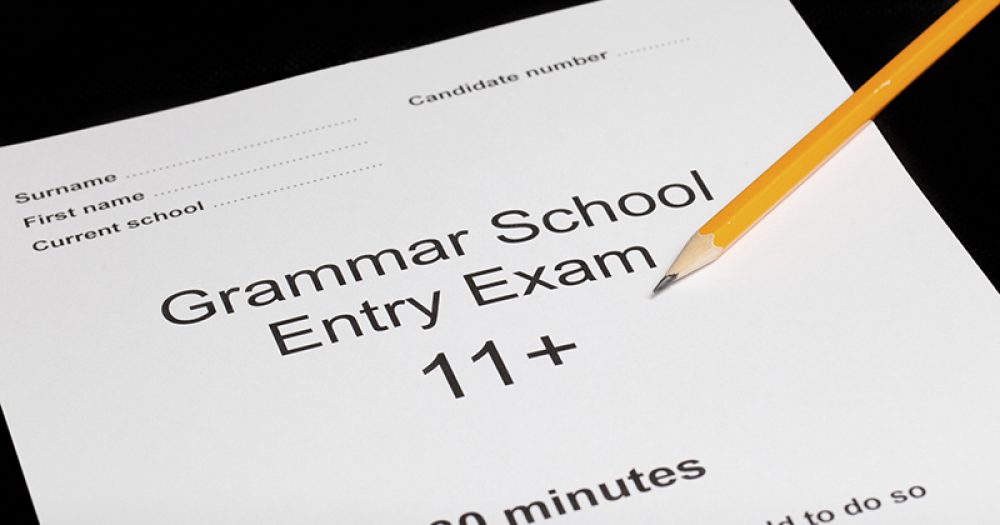Ministers have intervened to delay plans that education chiefs believe could pave the way for over 150 more children to join Kent grammar schools each year.
Proposals to make Holcombe Grammar, Chatham Grammar and Fort Pitt, all in Medway, co-educational were unveiled last year.
Leaders said the move would cut the number of pupils bussed into the area, while also balancing the number of boys and girls attending the district’s selective schools.
Medway Council – which backed the scheme – stated that the changes could precede an increase in the proportion of youngsters sitting its 11-plus exam being admitted by grammars.
But it has been announced the Department for Education “recommended to postpone” a decision on the plans so a new consultation on the project could be launched in the autumn.
‘More local kids will be offered places in grammar schools’
Documents penned by the University of Kent Academies Trust, which runs Chatham Grammar, stated the plans to make the girls-only secondary coeducational were “instigated” by Medway Council.
It did so to address “the disproportionate number of places available for young people in selective schools”.
The authority – which has pledged to hand the three secondaries £2.5 million for building modifications if the plans are greenlit – has stressed there are currently more grammar places for girls than boys.
It noted that once local children have been offered their places, any slots remaining are made available “to pupils who live outside [the area]”.
“The proposal to create more co-educational schools means that more Medway children could be offered a place at a local grammar.”
The district’s 11-plus admissions process currently allows for up to 23 per cent of the area’s year 6 cohort – which equated to 854 pupils in 2022 – to attend selective schools.
Up to an additional 2 per cent of the cohort may be deemed eligible following the parental review process.
However, council papers published last April stated that the changes to the grammars would, “in time”, allow for the exam’s pass percentage to increase to a “maximum of 28 per cent”. Analysis shows this would have resulted in 173 more youngsters attending the secondaries last year.
‘Non-selective schools will lose their brightest pupils’
Kent Education Network chair Joanne Bartley argued that the proposed changes will hit the area’s non-selective schools the hardest.
“Grammar systems, like the one in Medway, regularly have traditional selection patterns in place with inbuilt unfairness, such as more places for girls than boys.

“Medway is at least trying to fix this issue, but [also looking to] increase the overall percentage of pupils selected will lead to problems too. It’s quite unfair to local non-selective schools to cream off more high-attaining pupils and create more of a secondary-modern effect in their schools.”
Data obtained by former Kent headteacher and education adviser Peter Read through Freedom of Information requests show the three grammars offered 132 places for this September to pupils from outside Medway. Chatham contributed to more than 60 per cent of the figure.
Read added that the changes will result in “non-selective schools losing their brightest children”.
“It’s clear Medway Council wants to increase the 11-plus selection percentage to 28 per cent. The reason for this is that while there isn’t a shortage of places for Medway children at present, there is a very big shortage of non-selective places.”
New consultation before decision on grammar schools
Medway insisted it is “committed to ensuring all of our children have the best start in life, learn well and achieve their full potential”.
In a joint statement from the three multi-academy trusts running the grammars, they said the government “recommended” the consultation be broadened to include “additional stakeholders, including Greenwich’s local authority”.
The changes were initially expected to come into place at the start of the 2024-25 academic year. But it has been confirmed the schools will remain single sex next September.
The DfE stressed this week Dame Kate Dethridge, regional director for the south east, “has not yet taken a decision on these cases”.
It added that the new consultation will “ensure all those who could be affected by the proposed changes have the opportunity to have their views heard”.
Grammar schools at centre of controversy nationally
Medway currently has six grammar schools. Only one of them is coeducational, while three cater solely for girls and the other two are all-boys secondaries.
The expansion of grammars has been controversial. Official plans by former prime minister Theresa May to remove the ban on new selective schools were ditched in 2017.
During her brief stint in Number 10, Liz Truss tasked then education secretary Kit Malthouse with reviving the attempts last September.
Government had tasked grammar schools with increasing the number of disadvantaged children they admit.
But Schools Week revealed last year the disadvantage gap between 22 grammars handed £64 million to become more inclusive and their non-selective neighbours had widened. Commitments to tackle the issue were later watered down in the latest agreement signed by the DfE and the Grammar School Heads Association.







Your thoughts